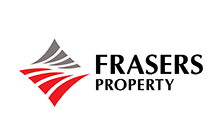.jpg?h=397&mw=725&w=725&hash=DB661E0C28090AFDA47E4698999F9998)
Currently in the process of searching for your new home or land lot? You might have come across terms like favourable zoning or zoning restrictions, but do you actually understand what they mean? What exactly is zoning anyway?
Defining zoning.
Zoning is used in town and city planning to effectively group up areas with similar characteristics and establish clear outcomes for these areas through policies. Zones are typically based on what the land will be used for, i.e residential, commercial or industrial purposes.
Laws around zoning also include restrictions on specific activities for certain plots of land, for example a single residential zone may only allow detached homes, and not apartment complexes.
What else does zoning affect?
It can also dictate how you build your home, and other factors such as:
- Regulation of dimensional requirements for buildings
- Density of residential or commercial developments
- Types of animals that can be kept on the grounds
Through zoning, spaces will also be designated to necessary institutions and community facilities such as parks, schools or hospitals, or to protect landmarks/areas of historical significance.
Is it permanent?
No. There have been exceptions and changes made to zoning classifications.
Who is in charge of zoning?
Your local county, city or municipal body would generally managing zoning, and the rules will differ from place to place. For example, you may find that restrictions in one suburb wouldn’t necessarily apply to a suburb across town.
If anything, make sure you research the zoning classifications of each property or land lot you inspect, so you’re always in the know.
For more general advice and information on zoning in your local area, feel free to contact us now to speak to one of our Project Sales Managers today.







